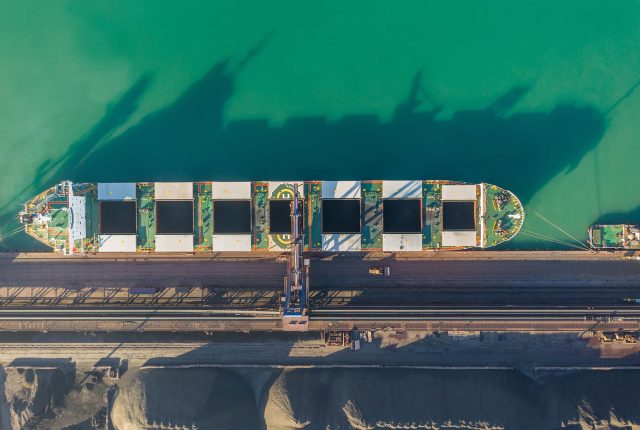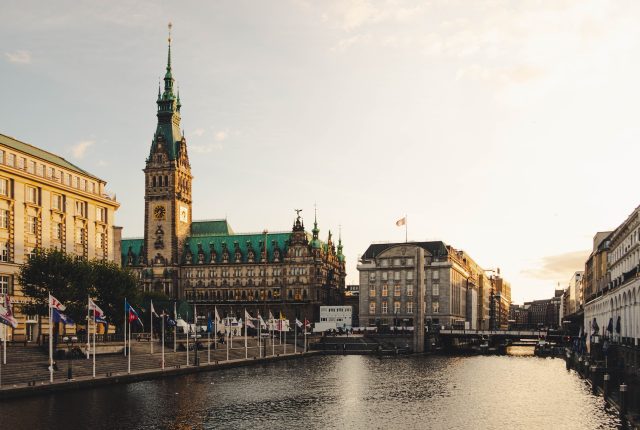
URSABLOG: I Am Shocked! Shocked!
I have been thinking about what word to use about my current frame of mind. Sceptical is no good, because most of my Greek friends will think I am just being thoughtful (σκεπτικός) whereas perhaps what I mean is δύσπιστος, which doesn’t really have a translation into English, at least as far as my limited Greek is concerned. The best way to describe it is like a cocktail: take a good slug of strong realism, with a healthy dash of bitter cynicism but topped up with fizzy hope. It’s a potent drink, leading to long and loud discussions until you collapse in a heap of exhaustion or go off into the night in search of comfort food: a warming bowl of disinterested noodles perhaps.
Take oil for example. It is now widely acknowledged that the “almost none” of Russian crude exports are now being sold below the US$60 per barrel cap, leaving the eleven-month old measure imposed by the G7 largely ineffective and effectively scuttled. The global energy markets know not only that Russian exports are happening, but that the ‘west’ (for the want of a better term) need them to happen to keep the oil price low enough not to bring further inflationary pressures to bear, or worse an all-out economic crash.
Buy there is outrage. In the warm and clean halls of Washington, the EU and other policy making forums, there is a cry of “Something Must Be Done!” But how can something be done when the policy makers are afraid of breaking to their own constituencies that they will have to pay for their outrage, and will actually have to pay quite a lot?
Over in Vienna, OPEC is warming up for its next meeting – together with Russia on the 26th November – and whilst the world could do with a bit more oil in the system it seems highly likely that OPEC+ will announce that there will be won’t be any production increases any time soon. Saudi Arabia, the biggest and most influential beast in OPEC – with or without the ‘+’ – wants to keep the price up anyway (they produce low cost crude, and have lots of it), and apart from maintaining their profit margins are keen to further develop their geopolitical leverage. (By the way, as I was boarding my plane in Athens airport this morning there were no less than three large passenger jets belonging to the Kingdom of Saudi Arabia on the apron. The weather’s not great, so I wondered why they were there? A just a bit of shopping en route to Vienna?) Whatever, the Saudis have no reason however to collapse demand completely.
Russia has different motivations of course. Part of it is hard cash – they need the money for their war machine – but it is also part of their strategy of divide and rule. The weaponising of LNG before and at the beginning of their invasion of Ukraine kind of backfired: Russia was surprised at how not only the EU stood together, not only by not approving Nordstream 2 but also by managing to find other sources of supply, and pay for it despite astronomical prices which in any case have since fallen back. Oil is different: in the global crude (and petroleum product) market Russia has many more buyers which don’t have the same scruples (or proximity) as the EU and in any case there are many more crude and product tankers in the spot market than there are LNG carriers. And maintaining the current price of Brent crude means that Russian oil will trade above the cap anyway.
If, as I suspect, OPEC+ will decide to do nothing, i.e. maintain the current production cuts in place for longer, the west will have to rethink its oil cap policy. The price of crude is a very blunt tool in diplomacy but the oil cap is hardly any sharper: it demands of western insurers that the oil carried on the ships they cover is sold below US$60 a barrel. It is suspected that many vessels carrying Russian crude are sailing with either falsified financial statements or non-western insurance, and in any case maintained to questionable standards. This last assumption has not been proven or even tested as far as I can see. RS classification society was booted out of IACS, a consequence of Russia’s commencement of its special military operation in Ukraine.
So rather than admitting that the policy is a failure, the EU is now examining ways to enforce the cap, or looking to clamp down on Russian interests buying secondhand tankers. The ambitions of the Russian government to build lots of new tankers themselves is – at best – a work in progress. I am sure that it will remain so long into the future.
Now the EU is apparently thinking about asking Copenhagen to start detaining ships passing the Danish Straits without western insurance under laws permitting inspections to those vessels they fear pose environmental threats, at least according to the Financial Times. I wonder. Stopping ships in the Danish Straits would go against the U.N. Convention on the Law of the Sea (UNCLOS), and the Danish navy is not known for its size and power. Apart from that, it opens up a whole new can of worms, whatever reasons are used to detain vessels. Can you imagine what would happen if Turkey decided to do the same thing in the Turkish Straits, or indeed China in the Taiwan Straits? This is a precedent surely no-one seriously wants.
And the proposal, as half baked as it is, is not meant to target Russian flagged ships anyway, at least according to other sources close to the EU Commission. That would be a severe provocation, if not an actual act of war. Kremlin spokesman Dmitry Peskov, whilst being unaware of the proposals, said
“Everyone should be cautioned in advance about the need to comply with all the rules of international commercial shipping.” This is a bit much too. Firing a missile at a Liberian flagged post-panamax bulker in Odessa, killing the pilot and injuring crew members in Odesa I am sure goes against many of the rules of international commercial shipping, SOLAS for a start.
And quite how the EU can implement or justify interventions in the secondhand S&P market for tankers is unclear. Most ships are not EU flagged, and neither are their owners registered in EU jurisdictions. The US Treasury department has been more direct, imposing sanctions on three UAE based owners, accusing them of exporting crude above the US$60 level. The three companies are said to be connected to Sovcomflot, but the Treasury said they had used “US person services while transporting the Russian origin crude oil”, a departure from previous sanctions on vessels using shipping services or insurance from countries in the coalition: G7 plus Australia. Can the EU do the same? I am not convinced.
The conundrum is that whilst G7 plus Australia has no desire to buy Russian oil or it’s products it cannot enforce its opinion on those parts of the world that does have a desire to do so. If it does try to impose its will on others it goes against the very ‘rules global based order’ that it professes to wish to maintain. Add into this heady mix the fact that if a complete ban on Russian oil – Russia is the world’s second largest exporter – was achievable it would send the world into the paroxysms of an oil shock the world has never seen, and therefore is unlikely to want to experience. And most western policy makers know it only all to well.
It reminds me of the scene in the film Casablanca when Captain Renault is closing Rick’s bar for specious reasons:
Rick: How can you close me up? On what grounds?
Captain Renault: I’m shocked, shocked to find that gambling is going on in here!
[a croupier hands Renault a pile of money]
Croupier: Your winnings, sir.
Captain Renault: [sotto voce] Oh, thank you very much.
[aloud]
Captain Renault: Everybody out at once!
There is potentially an interesting end game here (if there is ever an end game in these things). Opec+ maintains or introduces further crude oil production cuts. Opec+’s share of the market decreases and the price of Brent remains the same as the US, Guyana and Brazil increase their market share. And then, once inflation in the US and other western economies is under better control, more effective sanctions – if possible – can be put in place. I don’t think it is likely to happen this way, but history shows that crude oil diplomacy will at best leave you with dirty hands, or worse, can blow up in your face, whoever you are, and whatever your intentions.
You can now perhaps understand why I am feeling δύσπιστος. The reality of the world is unlikely to change, especially as those with the power to do so are afraid of worse consequences. This is natural, and wise, but only up to a point. In a cynical world there is no point in doing anything anyway. But there is always hope. At the end of Casablanca the two most cynical characters – Rick and Captain Renault – end up joining forces by almost surprising themselves into acting with integrity, even though that integrity is mired in the messy and compromising real world of heartbreak and death. Rick doesn’t get the girl, and Captain Renault realises it is time he left his comfort zone to fight for the Free French. It’s the start of a beautiful relationship. Life is messy, incomplete and full of compromises. So is the world. But – as I am so fond of saying – shipping is all about relationships.
Simon Ward


